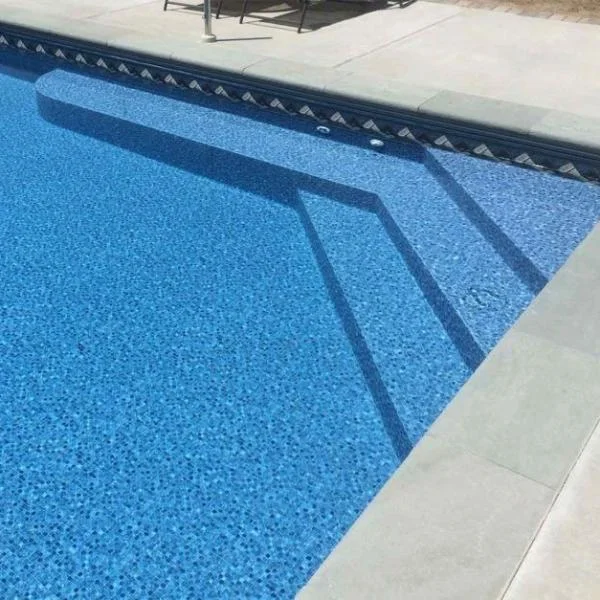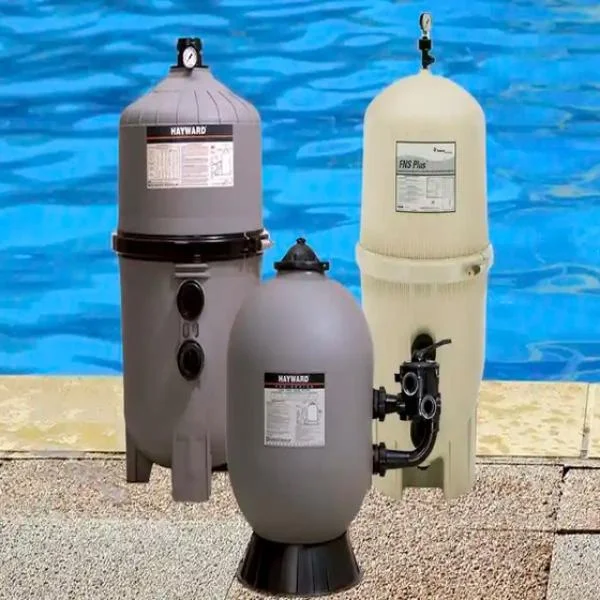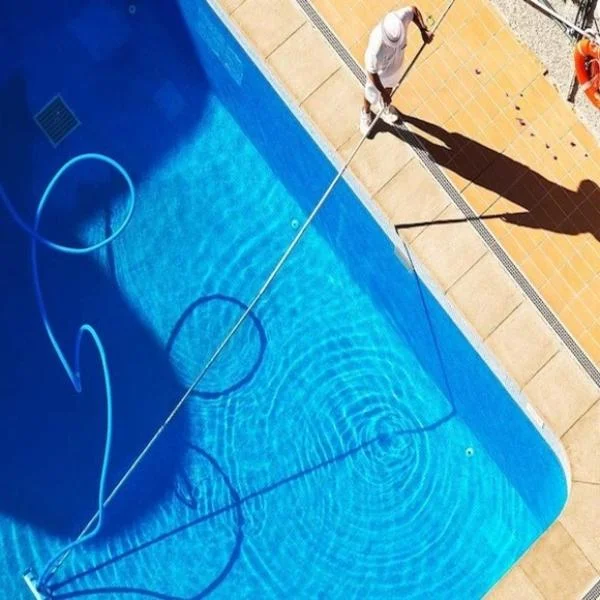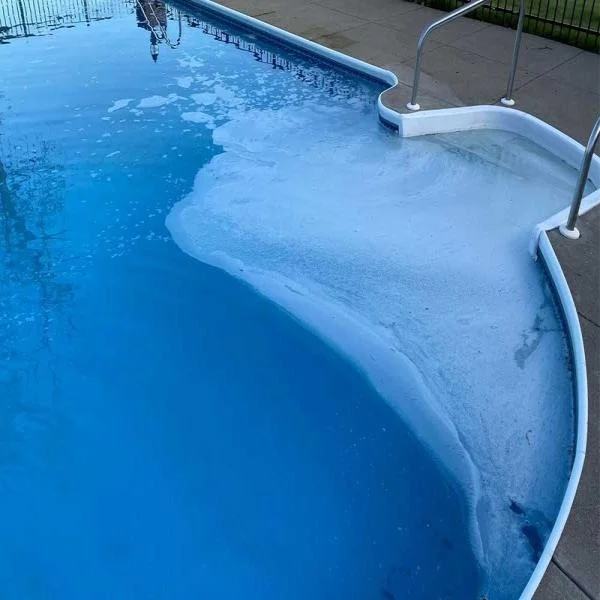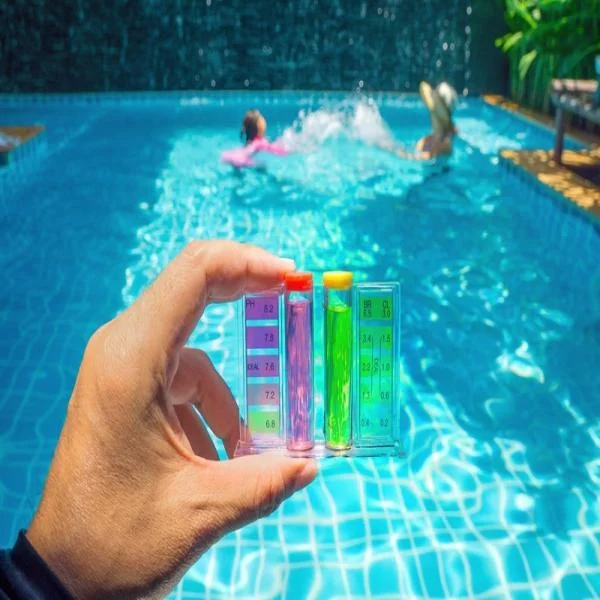
Keeping clean pool tiles is essential for maintaining your swimming pool's appearance and functionality. Over time, tiles can accumulate dirt, stains, algae, and calcium deposits, which can detract from the beauty of your pool and even cause long-term damage if not addressed properly. Regularly clean pool tiles will keep your pool clear and ensure tiles last many years. In this article, we'll explore the best ways to clean pool tiles and how to prevent common issues like calcium buildup and algae growth.
Why Clean Pool Tiles Regularly?
Pool tiles are constantly exposed to water, chemicals, and outdoor elements, all of which can contribute to the buildup of grime, algae, and minerals like calcium. If not clean pool tiles, these issues can worsen, leading to unsightly stains, a rough texture on the tile surfaces, and even structural damage to your pool.
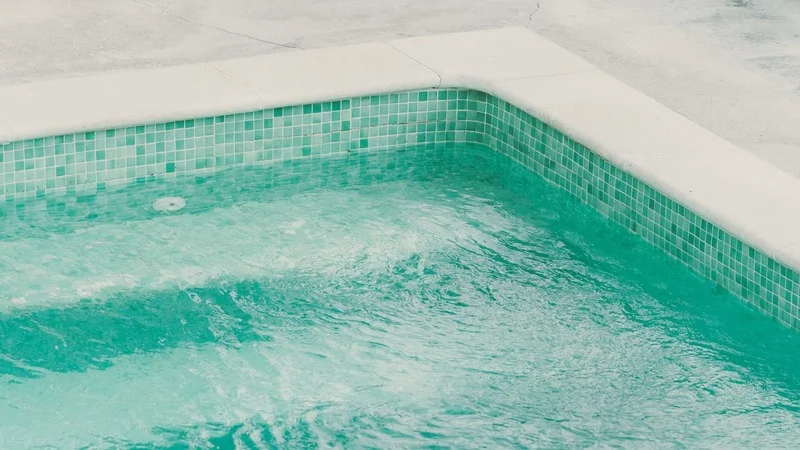
Here are a few reasons why regular clean pool tiles are essential:
- Clean pool tiles make your pool look well-maintained and have aesthetic appeal.
- Helping prevent excessive calcium buildup and algae growth can cause permanent damage to pool tiles over time.
- Algae and dirt can harbor bacteria, making your pool water unsafe for swimming, thereby needing clean pool tiles.
Common Types of Pool Tile Build-Up
Before you start to clean pool tiles, it’s essential to identify the type of buildup you are dealing with. The most common issues include:
- Calcium Deposits: Calcium deposits appear as white, chalky residue on tiles, especially at the waterline. This buildup is caused by hard water and improper chemical balance, particularly high pH and alkalinity levels.
- Algae Growth: Algae can form green, black, or yellow patches on your pool tiles. It thrives in warm, stagnant water and can quickly spread if not treated.
- Stains from Dirt or Organic Matter: Dirt, leaves, and other organic materials can settle on the tile surfaces, causing discoloration and stains over time.
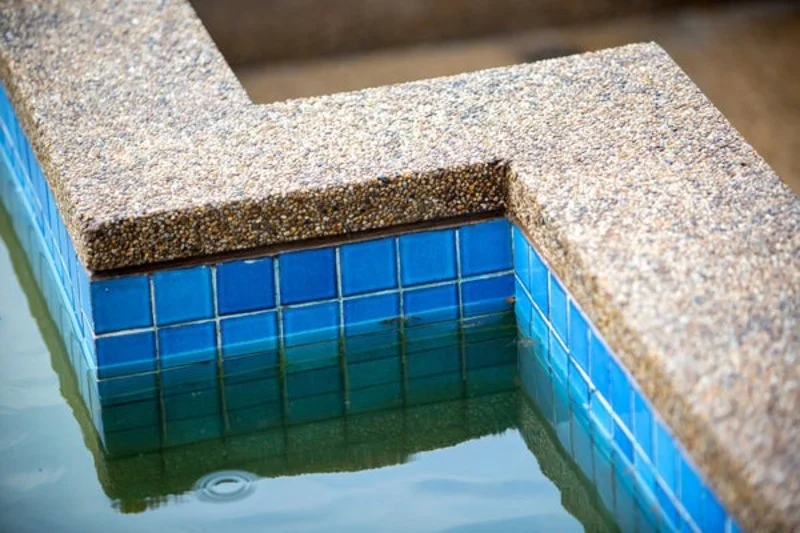
How to Cleaning Pool Tiles
Clean pool tiles are easy and should be a regular part of any well-rounded pool maintenance routine. Reducing the frequency of tile replacement, will not only increase the lifespan of your tile but also lower your lifetime maintenance costs.
Using a Soft Brush
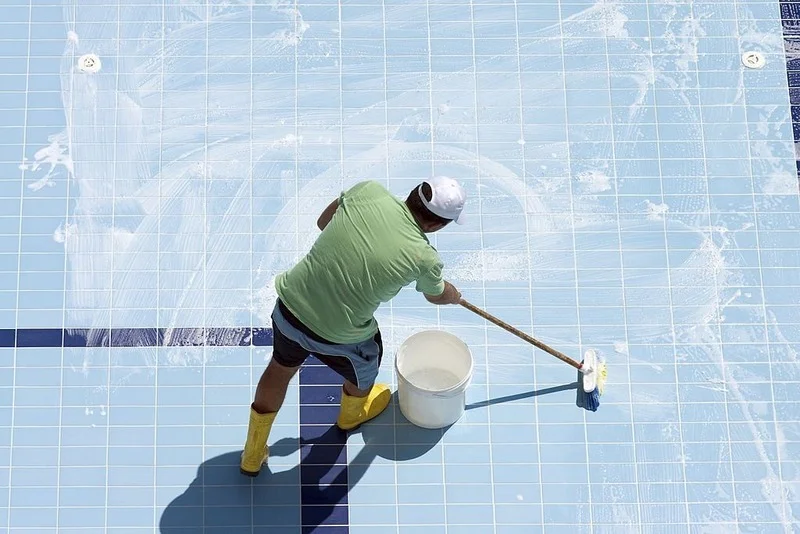
For clean pool tiles light, using a soft brush to scrub the tiles is often all you need. Begin by scrubbing along the waterline, where dirt, oils, and calcium tend to accumulate the most. If the buildup is minimal, simply using water with a bit of baking soda or a commercial tile cleaner can effectively remove stains and grime.
Make sure to move the brush in small, circular motions to gently clean the surface without scratching or damaging the tiles.
Use a Vinegar Solution
If you notice calcium deposits forming at the waterline, a vinegar solution can help dissolve the buildup. Mix equal parts water and white vinegar, then apply the solution to the tiles using a sponge or soft cloth. Let it sit for a few minutes to break down the calcium, then scrub gently with a brush.
Use a Pumice Stone
For severe calcium deposits, a pumice stone can be an effective tool. Wet the pumice stone before use, then gently scrub the calcium deposits using small, light strokes. Pumice stones are abrasive, so be careful not to apply too much pressure, as this can scratch the tile surface. This method is particularly useful for removing tough calcium scales around the waterline.
Apply an Algaecide
Algae can grow quickly on pool tiles if not addressed. If you notice green or black algae forming, it’s essential to clean fast. Use an algaecide product specifically designed for pools to treat the affected areas. First, scrub the algae with a brush to loosen it from the tile surface. Then, apply the algaecide according to the manufacturer’s instructions.
Clean Pool Tiles Thoroughly
After scrubbing the tiles and using any cleaning solutions or algaecide, it’s essential to rinse the tiles thoroughly with fresh water. This will remove any residue left behind from cleaning products and ensure your tiles are spotless. You can use a pool vacuum to remove any dirt or debris that may have fallen to the bottom of the pool during the cleaning process.
Preventing Buildup and Cleaning Pool Tile Stains
Regularly cleaning pool tiles is important, taking preventive measures can significantly reduce the amount of time and effort needed to maintain them. Here are a few tips to prevent future buildup and stains:
- Maintain Proper Water Chemistry: Ensuring that your pool’s pH, alkalinity, and calcium hardness levels are balanced is key to preventing calcium buildup and algae growth. Test your water regularly to avoid problems.
- Regular Brushing: Brush the pool tiles at least once a week, even if they don’t appear dirty. This will prevent dirt, grime, and algae from sticking to the surface.
- Use a Pool Cover: When your pool is not in use, cover it to protect the tiles from dirt, leaves, and other debris. This also helps reduce the amount of sunlight reaching the water, which can inhibit algae growth.
- Install a Water Softener: If your pool water has high calcium levels, consider using a water softener to reduce calcium deposits.
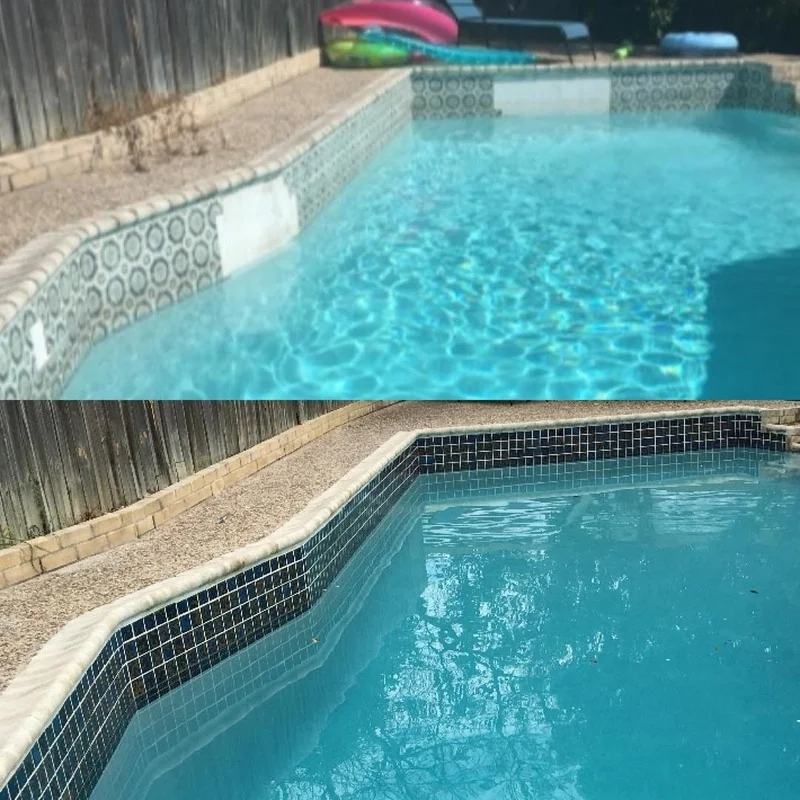
In summary, Dong A has shared with readers the most essential knowledge about ways to clean pool tiles. By using the right tools, you can remove stains, calcium deposits, and algae effectively. Prevention is also key to keeping your pool water balanced and clean reducing the frequency of deep cleaning sessions.
If you need more references about our water treatment products, please go to the official website of Dong A Chemical at dongachem.com or call a hotline (+84) 985797941 to receive advice and support from the experienced consultant.
Related Articles
The Best Ways to Clean a Pool Liner and Prevent Stains
A clean pool liner is essential for maintaining a crystal clear and safe swimming pool. Over time, ...
When and How to Clean a Pool Filter for Optimal Performance
A clean pool filter is essential for maintaining clear water and working hard to remove dirt, ...
Essential Pool Maintenance Tips for a Clear Swimming Pool
Pool maintenance is crucial to ensuring its cleanliness, safety, and longevity. Whether you have a ...
Why Does Change Pool Water Color? Common Reasons Explained
A pool water color blue pool is every pool owner’s dream. However, maintaining that crystal-clear ...
Why Is Foam in Pool Water? Causes and Solutions
Contaminants create foam in pool water and tend to stick around, causing your pool an unattractive, ...
Why Pool Water pH Important and How to Maintain It
Maintaining the correct pool water pH level is crucial for the safety of swimmers, the longevity of ...

